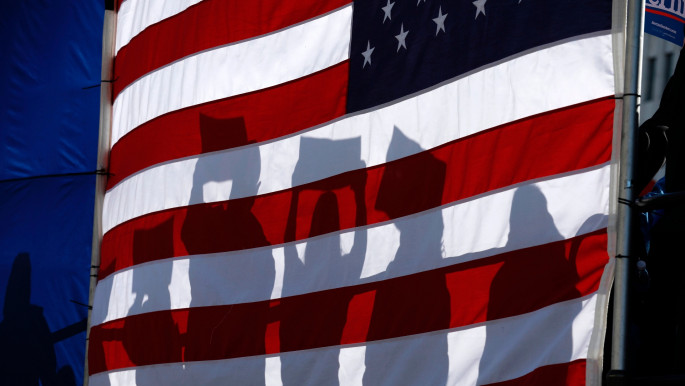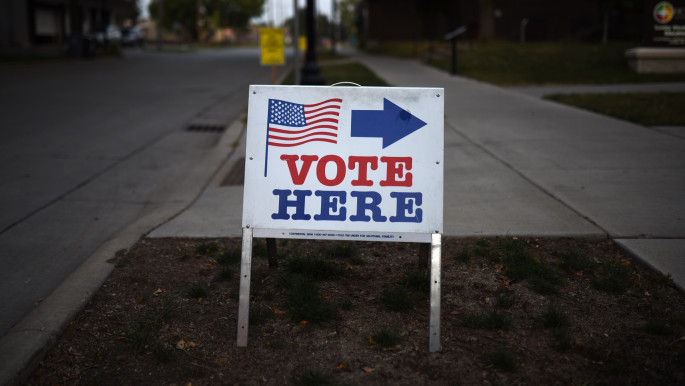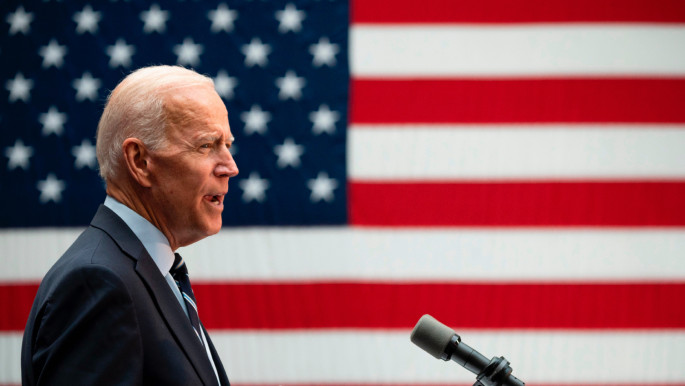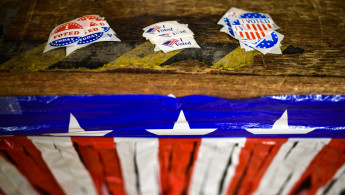'History in the making': How first-time immigrant voters see the 2020 US election
This can be particularly true for those from the Middle East and North Africa, where democratic elections are not the norm, and in the US they can become a part of their own politically engaged immigrant communities.
"To be honest, when we first moved to the US and got green cards, I could live here without voting. It didn't matter. Then the 2016 election happened, and I couldn't wait to vote," recalls Rawan Bairouti, a Syrian in southern California who became a citizen last year after arriving in 2013.
"Sitting there and not able to do anything [during the 2016 election], made me appreciate that right even more. It makes me upset with people who have always had the right to vote and don't, because not everyone has that privilege," she says. This year, it appears she's in good company.
According to a February study by the Pew Research Center, more than 23 million US immigrants are eligible to vote in the 2020 presidential election, accounting for around 10 percent of the country's overall electorate – both record highs.
 |
Over 23 million US immigrants are eligible to vote in the 2020 presidential election, accounting for around 10 percent of the country's overall electorate |  |
The population of immigrant voters has increased steadily over the past two decades, up 93 percent since 2000. By contrast, during the same period, the US-born voter population grew by 18 percent, from 181 million in 2000 to 215 million in 2020.
According to the same study, issues related to immigration have become important for naturalised Americans. For those from the MENA region, this includes the Muslim ban, domestic surveillance and civil rights. They also tend to be concerned about foreign policy related to the region, in addition to standard voter issues, such as climate change, education and healthcare.
 |
|
| Read more: Young Arab American voters aren't the monolithic bloc the US thinks they are |
For Nosayba Mahmoud, an Egyptian in Texas who became a US citizen in 2012, everything is on the ballot in her first national election. She is concerned about all of the key domestic issues, as well as America's policy in Egypt. Though like many voters from the Middle East, she preferred Vermont Senator Bernie Sanders, for her the choice between Joe Biden and Donald Trump is clear.
"For this election, I disagree with Trump on pretty much everything. But I also disagree a lot with Biden. But I agree with him more. At least he won't target people with executive orders. He's actually going to listen to science," she says.
She points to a Trump tweet in which he calls Abdel Fattah al-Sisi his "favorite dictator," while Biden has criticised the Egyptian leader's crackdown on activists. "Seeing what happened in Egypt, Biden says he's not going to give Sisi the green light."
Mahmoud, who has been attending local town halls for nearly two years, encourages everyone to hold their elected officials accountable. "Demand your agenda from those you voted for. Go to their town halls," she says. "There's a lot of work to be done. We have to start somewhere."
 |
I try to tell people: if you don't vote, you don't matter for the people who make policies. Voting is a powerful thing |  |
Similarly, for Tabish Nazar, who became a citizen in March, voting for Biden is the most basic decision he could make in this election. Though originally a Sanders supporter, he was quick to join the Biden camp once he became the democratic nominee.
He says, "It's a very easy thing. I looked at the policies of both parties. Education, healthcare. Do they believe in science?"
Moreover, he is dismayed at the deterioration of basic social norms, as people appear to have become more emboldened in their bigotry under Trump. "People are bold enough to be racist. They don't care if they're being videotaped," he says.
 |
|
| Read more: How Arab and Muslim voters could swing Michigan against Trump |
For this election, he's encouraging everyone he knows to vote. He has volunteered to drive his neighbours, and anyone else who doesn't have a car, to the polls. "There's no excuse not to vote," he says.
"I'm excited. This is history in the making. I don't know what's going to happen. I know that every vote matters. I know that every single person should vote," he says. "We should always be active in politics. I try to tell people: if you don't vote, you don't matter for the people who make policies. If you want to be considered, you have to vote. Voting is a powerful thing."
For some immigrants, voting is not just about choosing one's representatives, but also about feeling like they truly belong in their adopted country.
 |
The Muslim ban, domestic surveillance and civil rights are important issues for naturalised Americans from the Middle East |  |
Dobrina Ustun, an immigration lawyer who arrived in the US more than 20 years ago from Bulgaria, says that voting was one of the main reasons she and her husband (from Turkey) applied for citizenship.
Voting, she says, means that "Now I'm actually part of the society. I can express myself. It grounds me more. It makes me part of the decision-making process. It's important for me. I immigrated so long ago. It's like home. It's the final stage."
 |
|
| Read more: What a Biden presidency could mean for the Middle East |
Bairouti also sees voting as confirmation of her citizenship and belonging – a right, responsibility and privilege that shouldn't be taken for granted, particularly given the country's high number of undocumented immigrants who contribute to society but cannot vote.
"It really feels amazing. Just becoming a citizen, I feel like I belong. I have the right to be here. We have a place, even if other people don't like it," she says.
"I want people who take that right for granted to think about that privilege they have. It's as much of a responsibility as it is a right. People really need to think about that. I have the privilege to become a citizen and be a first-time voter," Bairouti says.
"There are people who live here who will never be citizens, who have to stand by at every election."
Brooke Anderson is a freelance journalist covering international politics, business and culture
Follow her on Twitter: @Brookethenews



